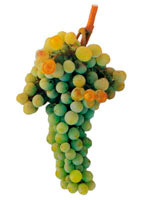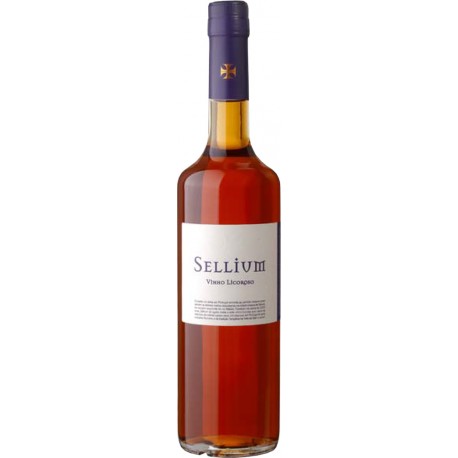Sellium vintage Fortified wine
HT91010
New product
Wine greedy, intense aroma and persistent flavor full of luscious notes, hints of dried stone fruit and light caramelized. Goodvolume in the mouthandlong finish.
Ageing 18 months in French and American used oak barrels.
Data sheet
| Export Box: | 6 bottles with 75cl |
| Euro Pallet | 110 boxes |
More info
Fortified wine from the Tejp region
Designation: Sellium vintage
Appellation: Vinho
Origin: Tomar, Portugal
Grape varieties: Moscatel Roxo - 100%
Ageing 18 months in French and American used oak barrels.
Winemaker tasting notes: "Wine greedy, intense aroma and persistent flavor full of luscious notes, hints of dried stone fruit and light caramelized. Goodvolume in the mouthandlong finish."
Analysis
Alcohol content: 18% vol.
pH 3,71
Total acidity: 3,98 g/l
Reducing sugars: 130 g/l
Reviews "This has flavors that are reminiscent of the Moscatels from Setubal. It's a rich wine that shows a hint of the spirit element, but the ripe flavors of toffee and raisin ice cream are more prominent. Drink now." 88 pts - Roger Voss 21112012
Awards
Gold AWC Vienna, 2013
88pts Wine Enthusiast
The plantation of vineyards in Portugal dates back to the Roman period as evidenced by the findings amphora’s in the Roman city of Sellium,on the left bank of the river Nabão.
Founded around 2000 years Sellium now gives name to this fortified wine that comes from selection of rare noble grape varieties, introduced in Portugal during the Roman Empire, and the Templar tradition in the "art of making wine.“
Aged 18 months in used oak barrels that gave to the wine good mouthfeel and long finish, proving to be the ideal companion for desserts or simply to end the meal.
We suggest that appreciates at a temperature of 14-16ºC.
The Grapes
 Moscatel
Moscatel
This variety is known to have originated in Egypt, having spread to the Mediterranean from Alexandria, possibly during the period of the Roman Empire (Galet 1985).
It is a grape of average strength and has a difficult flowering and fertilization, prone to not fruiting after flowering. Resistant to dryness, it's sensitive to mildew and powdery mildew.
There are various types of Moscatel in the world (ex. the French Muscat, the Italian Moscato), and all of them with a significant concentration of aromatic (terpene) and flavor components.
However, it's the Portuguese Moscatel that has the best concentration and richness of these components. The typical aromas of Moscatel are well-known: citrus flowers and zest, honey, lime, rose, lychee, pear, date and raisin, which create memorable wines.







